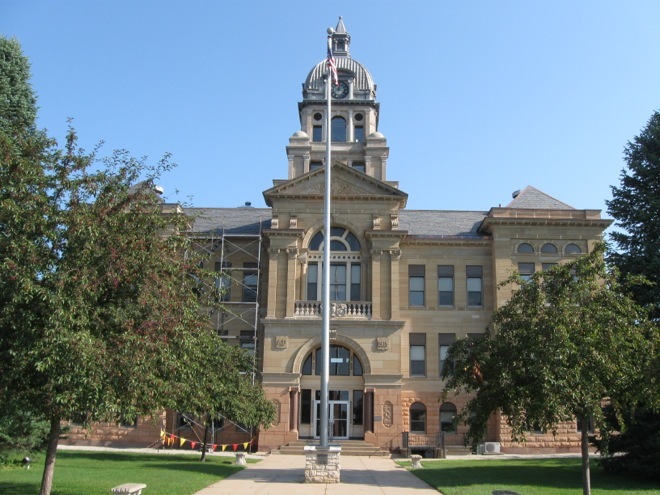Since the founding of our communities, organizations, businesses and citizens have stepped forward to build and serve their community. Click on any of the logos below to learn about those who made this website possible! If you would like to learn about becoming a sponsor CLICK HERE!

- County: Benton County, IA
- Region: Southeast IA
- Sponsors
- About Belle Plaine, IA
- Businesses
- Community Organizations
- Faith Organizations
- Festivals and Events
- Points of Interest
- Veterans
- Visit Website
Learn how to Contribute to any of the above categories.
No news yet. Got some news? Hit that NEW POST button!
About Belle Plaine, IA
The City of Belle Plaine, population 2534 is located in the Southwest corner of Benton County approximately 2 miles north of the Iowa River. The name “Belle Plaine” is said to mean “Belle of the Prairie” or Beautiful Plain” and was chosen at the same time the railroad came. The land consisted of high prairie grass with the only wooded area along the rivers and creeks. Deer and wildfowl were plentiful and the streams a fisherman’s paradise. Today hunting and fishing are still enjoyed and trees are bountiful throughout the entire city.
In 1856 the first post office was established after eight families came from Tennessee to join the original seven families.
Mr. and Mrs. William White came to Belle Plaine in 1861 and built the first frame house, first store building on Main Street and built the first bridge across the Iowa River.
In 1864 the town grew rapidly and its solidity was established. The years from 1862 to 1872 brought settlement of the prairie, permanent establishment of the town, and the beginnings of commerce and culture.
Two events are special in the history of Belle Plaine.
In 1886 a well being drilled sprang water up 53 feet in the air causing what is now known as “Jumbo Well.” It took 14 months to harness the well.
In 1894 a great fire occurred destroying almost 5 solid blocks of businesses (approx. 80 businesses).
In the 1920’s the “Lincoln Highway” came through Belle Plaine. This was the first transcontinental highway and brought many travelers through the town.
Today Belle Plaine has continued to grow. We have major manufacturers and employers whom make up a sizable workforce. Our schools are not consolidated and consist of Longfellow Elementary and the Belle Plaine High School & Junior HIgh. Kirkwood Community College has a campus here and our Community Library is one of the finest in the area.
In addition the city has 5 parks including an Aquatic Facility, ball diamonds, basketball court, tennis courts, volleyball, disc golf, park shelters, camping pads with electricity and new playground equipment. We also have a movie theatre, a 9 hole golf course and airport.
Our annual events include a large July 4th celebration and parade and Jumbo Well Days.
Interesting Fact about Belle Plaine, Iowa:
William Weir was born on the family farm in Otonabee Township, Peterborough County, Canada, the son of Robert and Catherine Weir. The family appears on the 1851 Canada West Census with place of birth given as Ireland. William married Melissa Ann Way Young 26 March 1856, in Trenton Canada West. She was born 13 March 1836, the daughter of Samuel and Sarah Young of Mary, Canada West. William and Melissa began married life, according to the 1861 Canada Census West, as farmers near a farm of his parents in Otonabee Twp. Peterborough, Canada.
Family tradition indicates Weir was a successful businessman in Peterborough, rather than a farmer, but the nature of his occupation is not known. Good times did not last, and in 1865 William suffered a severe financial loss, caused according to his obituary, by "the failure of a trusted friend whom he endorsed for a large amount." William, his wife and four children left Canada and came directly to Monticello, Jones County, Iowa. Three more children were born in Monticello.
The 1870 Federal Census of Iowa gives William's occupation as "plasterer" and 10 years later in the 1880 Federal Census he is listed as a "stone mason". From his obituary we learn he was, "enthusiastic over the subject of artesian [sic] Wells." There are claims that many of the artesian wells in northern Iowa were brought into being due to the interest of "William Weir and Sons."
The town of Belle Plaine, Iowa, contracted a well digger from Monticello, Iowa, to drill an artesian well to provide water and fire protection to a section of the town. The sum of $175 was offered to "bring in" the well and work by William Weir and his sons began upon receipt. They were not strangers to the citizens of Belle Plaine for they had recently successfully drilled several other artesian wells in the same city.
What happened thereafter made the news, not just in Iowa but from coast to coast! The Belle Plaine artesian well erupted into a monster -- more than 3,000 gallons of water per minute boiled into the streets, threatening to flood the homes and businesses in its path. Weir and his sons worked frantically to stem the flow and cap the well, until all their supplies were exhausted and darkness was falling. William Weir and his sons left Belle Plaine, presumably the terrified townspeople thought, to gather necessary material with which to stop the furious flow of water. Weir and his sons were never seen again in the town of Belle Plaine. Fourteen months and many thousands of dollars later "Jumbo" was brought under control by experts from as far away as Chicago.
By [the spring of] 1890 William was drilling in Cherokee, Iowa, so apparently the Belle Plaine disaster had not harmed his business. Custom at that time demanded the well digger must drink the first cup from any newly dug well. He honored this tradition, contracted typhoid fever, and died June 1890 of what was often called in those days, "the well digger's disease." He was buried in Lowell Township Cemetery.
Melissa Weir was survived by 14 grandchildren and two great-grandchildren, all of whom lived in Iowa at the time of her death August 1, 1940 at Davenport, Iowa.
The maximum flow of water is estimated to have been at 5,000,000 to 9,000,000 gallons per day. This enormous flow of water caused the surrounding wells to stop flowing. The attempt to control the well continued from August 26, 1886 to October 6, 1887 when it was finally accomplished. The well was finally tamed by sinking one large pipe with a smaller one inside it, the space between was caulked, and the outside cavity filled with rock and cement. A granite marker now identifies Jumbo at the intersection of Eighth Street and Eighth Avenue, Belle Plaine, Iowa.
Benton County, IA
Visit our county page and you will find information about our town and county's points of interest, festivals/events and faith community. You also will learn about the community organizations that have built and continue to build strong communities (chambers, community groups, and departments, etc) and much more when you visit the Benton County, IA page.

